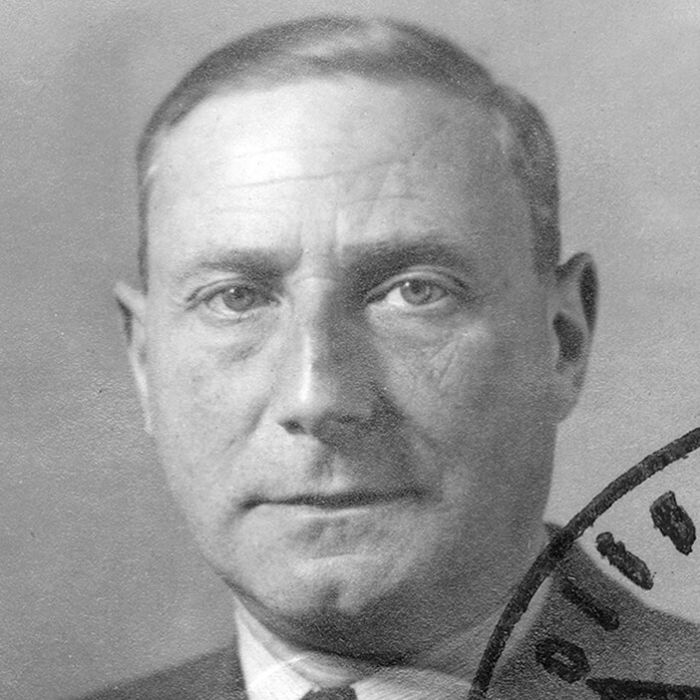Paul Franz Wassermann was born in Munich on March 3, 1887, the son of the industrialist Franz Wassermann and his wife Amalie, nee Fechheimer. He grew up with his siblings Ernst, Friedrich and Ida at Fraunhoferstrasse 16 (later 30). After earning his school-leaving certificate he studied chemistry, physics and botany in Munich. He completed his dissertation at the Ludwigs-Universität in Giessen in the winter semester of 1909/10 and was awarded his doctoral degree in 1910. In 1914, after his father’s death, he took over the family business, a soap and candle factory located at Fraunhoferstrasse 18.
In 1916 Paul Wassermann converted from Judaism to Catholicism. German nationalist and monarchist in outlook, in 1920 he joined the Bavarian Schützenbrigade (rifle brigade), which had emerged from the Freikorps Epp. Wassermann had already taken an active interest in public adult education in his student days. From 1915 to 1923 he was chairman of the Verein Studentische Arbeiter-Fortbildungskurse (student association of continuing-education courses for workers). He rendered outstanding services to the 1924 establishment of a Volksheim (people’s home) by paying for part of the construction costs. Affiliated with the Munich Volkshochschule (adult education center), the home was located in the southern Isar gate tower. His nephew Franz Wassermann later recalled: “Paul was an easygoing man, essentially a stay-at-home. He was always in a good mood. […] He belonged to an aviation club and attended its monthly meetings.” In November 1935, the Bavarian Aero Club dedicated a beer stein to him especially engraved for that purpose.
Paul Wassermann’s life began to change soon after the Nazis came to power. His business was now considered Jewish and as a result he lost orders, including those from the Munich-Schwabing municipal hospital. In 1937 the Nazis forced Wassermann, his sister and his mother to move from Fraunhoferstrasse to Elisabethstrasse 30. In the summer of 1938 he had to sell his business. During the pogroms of November 9/10, 1938, he evaded arrest and committal to a concentration camp by fleeing to the countryside with the help of his friend Willy Roth. After returning to Munich, he made a desperate—and futile—attempt to leave Germany. On November 20, 1941 the Gestapo deported him to Kaunas in Lithuania along with some 1,000 other Jews. Five days later the SS shot the entire group of deportees to death.
Paul’s brother Dr. Friedrich Wassermann had managed to emigrate to the U.S. He died in Downers Grove, Illinois in 1969. His mother and his sister Ida were deported to the Theresienstadt ghetto on June 25, 1942. They survived and returned to Munich on September 7, 1945. Ida Schneidhuber’s daughters also survived and later lived in the U.S. and in Munich. (text Dr. Bernhard Schossig, editor C. Fritsche,translation J. Rosenthal)





